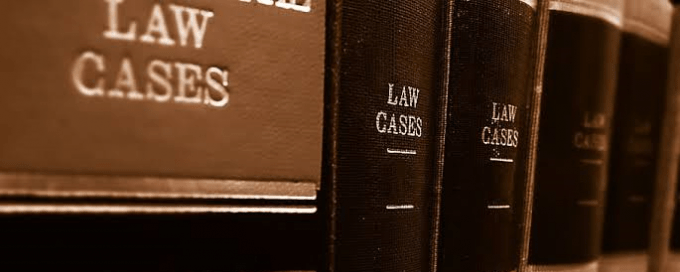The Cyrus Tale of the ‘Salty Software’

Introducing Retirement at Court Doors
The 82-year-old tycoon who was looking forward to a partial retirement is now knocking the doors of the Supreme Court to challenge and set aside the National Company Law Appellate Tribunal (“NCLAT”) order that found him guilty of taking steps of prejudicial nature. In the civil appeal filed, Ratan Tata opined that the very base of the judgment was built on a wrong premise stating and treating Tata Sons as a two-group company. He also observed and stood firm to point, that the opinion made about him with respect to the minority shareholders’ interest had no base or factual binding to begin with.
The Order dated December 18, 2019 in a Company Appeal[1] had the NCLAT pass serious limitations
against the Registrar of Companies(“RoC”) averring that Tata Sons to
save themselves from the impending doom hastily changed its status from a
public company to a Private entity. As of March 31, 2009, Tata Sons was running
its bargain as a Public entity taking deposits.
“Cyrus Mistry was/is a serious
mystery!”
Where the Supreme Court stayed the order of the NCLAT
reinstating Cyrus Mistry as the executive chairman of Tata Sons, the verdict of
the Tribunal was what lit sparks to already existing corporate feud. Though, to
say, with this stay the ‘Salty Software’ multinational could resume affairs and
touch normal business bargains once again.
Looking at Cyrus Mistry being the fulcrum of the corporate
feud, NCLAT agreed to call a halt to the proceedings to seek clarification of
what the RoC constitutes as a Private company. There was definitely a sword
hanging on RoC Mumbai, for the NCLAT contended that they had removed the word ‘Public’
from Tata Sons Limited in the absence of what should have technically fallen
within the ambit of Section 14 of the Companies Act 2013. The RoC opinionated
otherwise and said that the verdict was factually wrong and had many errors,
legally.
The Private-Public Scuffle
Analysing what actually constitutes a Private company and
whether if the conversion of Tata Sons from public to private was legalized,
was the question of understanding. From a lawful point of view, such conversion
requires the following of certain mandates under the umbrella perspective of
the Companies Act 2013. The dictate of Section 14(1)(b) read with Section
14(2)(3) of the Companies Act 2013 recites approval to such conversion. This
would only be so, provided there is a go-ahead from the Tribunal. It is only
after this phase a company can request the Registrar for a printed copy of the
altered articles to register the company as Public or Private, whatever may be
the case. Two critical issues have come to notice; one being the timing of the
conversion and the other being the means by which the same was attempted. As
for the timing perspective, can one use co-incidence as a defence to the same?
This is because the conversion happened exactly at the time Mistry filed an
appeal before the NCLAT. Where NCLAT differed on legal grounds procedurally,
Tata Sons relied on a mere circular of 13th September 2013[2], which stated that such conversion
could be the possibility of direct means with the permission of the Registrar
of Companies. For all reasons known, a Public company stands answerable in
terms of corporate communal supremacy as against a company which is a supposed Private
entity.
Tata sons was ridiculed for their hasty move, but if one
were to look at Article 75 of Tata Sons’ Article of Association (“AoA”) it
clearly mentions that a company can ask any of the shareholders to sell their
shares. Though this article has not been invoked as yet, this is where the
importance of the conversion can be understood because such conversion would
not be validated with a public company. A Private company owns the power to
question or enforce restrictions on the transferability of shares wherein a
public company stands restrained on this aspect under law. Pioneering through
the facet of legality and illegality, it can be opined that both understandings
have a bearing in their own way. The Supreme Courts’ viewing of Article 75 will
further lay down how Articles of Association are drafted for all companies, be
it public or private.
After the judgment of 18th December 2019, the RoC
filed a submission under Section 420(2) and 424(1) of the Companies Act 2013,
because they felt they were not given equal opportunity of hearing thereby
being sacrilegious to the principles of natural justice which are by default,
due to all. The Hon’ble NCLAT rejected the plea of RoC on 6th
January 2020, saying that no part of the judgment of 18th December
2019 cast any kind of aspersions. Supreme Court of India, staying the
order stating that there were basic errors in NCLAT’s observations and the
decision of the RoC to allow such conversion was illegal is justified in accordance
with the law.
- [1] Company Appeal (AT) No. 254 of 2018, NCLAT Judgment in Company Appeal
- [2] General Circular No. 15/2013, Sub-section (58) of section 2: The Registrar of Companies may register those memorandum and articles of association received till 11 September 2013 as per the definition clause of the private company, under the Companies Act, without referring to the definition of ‘private company’ under the said Act.
Contributed By – Rhea Susan Verghese
Designation – Associate
King Stubb & Kasiva,
Advocates & Attorneys
New Delhi | Mumbai | Bangalore | Chennai | Hyderabad | Kochi
Tel: +91 11 41032969 | Email: info@ksandk.com
By entering the email address you agree to our Privacy Policy.